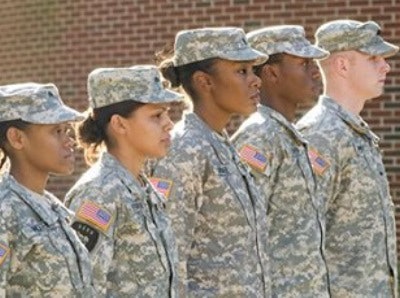
“ … It takes decades to grow our senior military leaders, and today, we can’t afford to close ourselves off to anyone,” Carter continued in a June Pentagon speech. “As we remind ourselves how diversity and inclusion help make us stronger, we must also remember another reason why they’re important: because they’re part of our national character.”
In 2012, Rep. Hank Johnson, D-Ga., whose congressional district sits only miles from the Atlanta University Center — home of five of the state’s 10 historically Black colleges and universities — spoke of the importance of diversity in military leadership as the FY 2013 National Defense Authorization Act was being reauthorized.
“It’s important that our military leadership reflects America,” said Johnson at the time. “Minorities are underrepresented among officers and senior enlisted personnel. We need more diverse representation in the military’s senior leadership.”
A March 2011 report by the Military Leadership Diversity Commission declared “the Armed Forces have not yet succeeded in developing a continuing stream of leaders who are as demographically diverse as the Nation they serve. Racial/ethnic minorities and women still lag behind non-Hispanic white men in terms of representative percentage of military leadership positions held.”
Despite some gains over the previous 10 years, a 2013 Department of Defense (DoD) report found that only 9.4 percent of active duty officers across all branches of the military are Black, compared to 17 percent of enlisted members. In fact, all racial/ethnic minorities are grossly underrepresented among the officer ranks; Whites comprise 77.6 percent of all officers in the U.S. military.
“The officer corps is innately an exclusive club,” says Navy Lt. Rabb Muhammad, assistant operations officer for the Navy Recruiting District Atlanta. “Most officers come from a strong family military tradition. Some have had family in the military that can be traced to the birth of the Republic. … Minorities have only been able to serve in the capacity of being an officer since the 1940s. Minorities are starting extremely late to the race.”














